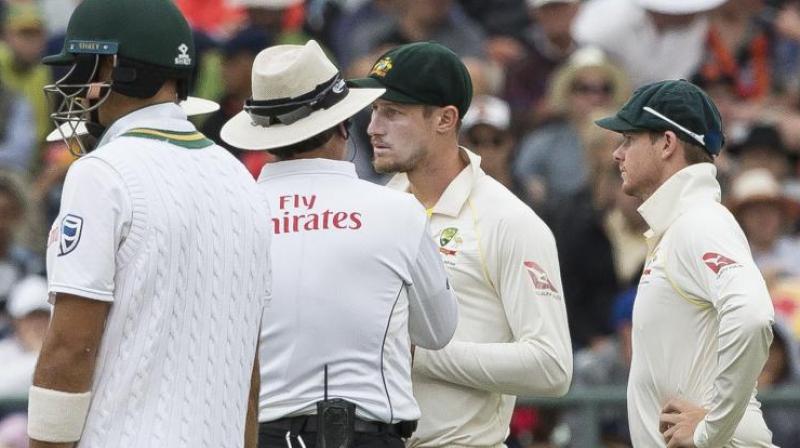Post Cape Town incident, ICC to review punishment for ball tampering
Under its current code of conduct, the ICC were unable to impose more than a full-match fine and a one-Test ban on Smith.

London: The International Cricket Council (ICC) is set to review its punishment for ball-tampering in light of the Australia cheating scandal, warning the game is in danger unless decisive action is taken.
Cricket Australia has banned Steve Smith and David Warner from international and domestic cricket for a year while opening batsman Cameron Bancroft was exiled for nine months over the incident during the third Test in South Africa.
Under its current code of conduct, the ICC were unable to impose more than a full-match fine and a one-Test ban on Smith under its current code of conduct, unlike the more stringent penalty since levied by Cricket Australia.
"We've come to realise that the world -- not only Australia -- regards ball-tampering in a very serious light. It goes to the spirit of the game," said chief executive David Richardson.
"I must admit this has been an eye-opener for me personally. We need to look at the penalty imposed, specific to ball-tampering.
"Around the world, ball-tampering is considered cheating... I think we need to look at it again, and this is what has prompted this review."
Richardson said a wide-ranging review, likely to be informed by respected former players such as Allan Border, Anil Kumble, Shaun Pollock and Courtney Walsh, would be an opportunity to "draw a line in the sand" and address fans' concerns about how the game is played.
"The reaction all around the world shows us that if we neglect the way the game is played, cricket is itself in danger," he said.
"We are going to ignore (that) at our peril... we don't want to leave this lingering, and hope it will all go away."
Richardson, a former South African wicketkeeper, said cricket had been blighted by bad behaviour in recent weeks including ugly incidents of sledging, abusive language and now the ball-tampering episode.
"With the full support of the board, we'll be undertaking quite a wide-ranging review into player conduct -- and in particular the spirit in which the game is played," he said.
"We hope this review will develop that universal culture of what it means to play the game in the correct manner.
"We want member countries, across the board, to be more accountable for the behaviour of their players -- take responsibility for it. That applies to all teams, not only Australia," he added.

